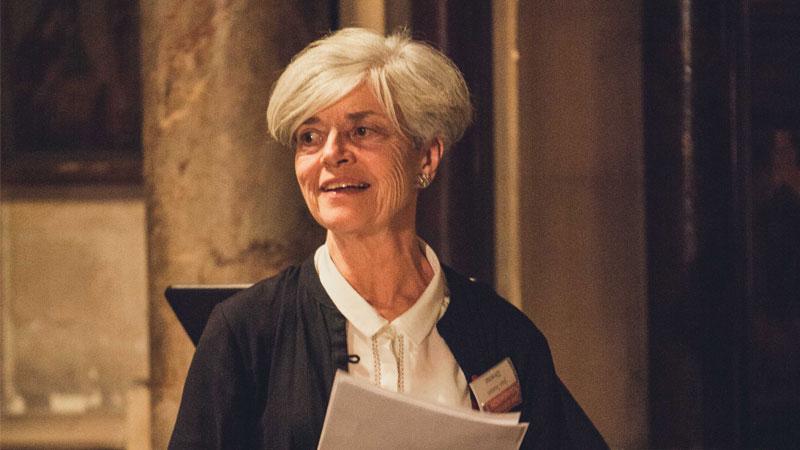Sheila Borrett became the first woman in Britain to announce the news on the BBC’s National Service after she made her debut on 28 July 1933. To celebrate the 90th anniversary of this historic moment, Westminster’s Professor Jean Seaton spoke to journalist Kate McCann on Times Radio about her pioneering career.

In the show, Professor Jean Seaton, a Professor of Media History at Westminster and the Official Historian of the BBC, reflects on Sheila’s iconic low voice and how this may have put her in good stead to get the job.
She said: “She had a lovely fruity voice – that is how it’s described. She had a low voice. One of the problems if you go back to the 20s and 30s was the quality of sound broadcasting. Low voices were believed to, and perhaps did, sound better given the technology at the time.”
While Sheila was the first of her kind, Professor Seaton explains how there were already strong women working within the BBC. She touches on Hilda Matheson, OBE, a radio talks producer who became the first Director of Talks at the organisation. However, despite a strong feature of women throughout the BBC, Professor Seaton points out that news announcing still remained a man’s game until Sheila came along.
Professor Seaton said: “By the time she was appointed in 1933, the BBC had a lot of formidable women working in it, including Hilda Matheson. The BBC was a modern organisation which had women from the top to the bottom, much more than print newspapers did, so it wasn’t an anti-woman organisation at all.”
She continued: “In 1933 Hilda Matheson, who was a very formidable creator of programmes like The Week in Westminster, had already started writing things like why aren’t we hearing more women’s voices around things like news? There were lots of women voices and women broadcasting but there weren’t women reading the news.”
To conclude the segment, Professor Seaton explains how at the time news was believed to be the most impersonal form of media. While women’s voices were everywhere else on the BBC, news readers were expected to be male to represent the corporation and keep the impersonal tone. As a result of this, Sheila ended up being sacked only four months after her debut after the BBC received a huge wave of complaints from women.
Listen to the first and the second part of the interview on the Times Radio website (paywall protected).


